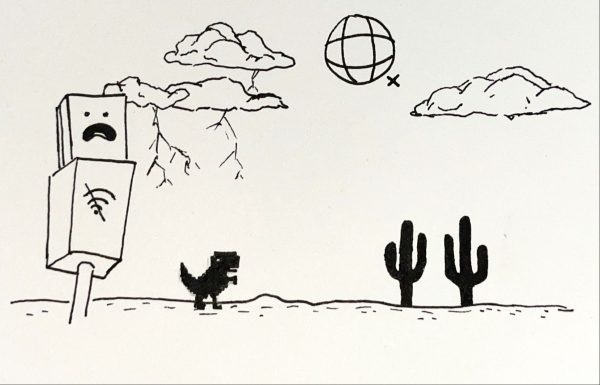Pressing the issues
May 3, 2006
It’s all happening right now.
Turn and look around you. Immigration legislation protesters are coming together and standing up for their ideals, and it’s a beautiful thing.
They have united in small groups within our nation, and the impact of the protests has been financial and psychological. We are forced to face, head on, the actuality of what has been murmured over and speculated upon for years.
Whatever the legal result will be, we should not forget, or fail to be touched by, what all this really means: No matter how divided an issue may be, we are all impacted by it.
That message has been overlooked.
It was not long ago when our hearts reached out to victims of the tsunami and when we all made a temporary effort to raise funds for the devastation caused by Hurricane Katrina. However, the destruction from these tragedies didn’t disappear as quickly as our interest did, and instead of following through with our initial aims in a unified, consistent matter, we seem to have just shifted our focus to the next distracting tragedy.
As we speak, there are many places without running water, electricity and access to the basic fundamentals that keep people alive in New Orleans. The government’s financial aid for the area has run out. According to my visiting women’s studies professor Collette Morrow, who has visited New Orleans several times since the hurricane, much of the area is almost fully dependent on the few grassroots organizations that have actually gone there and made a difference.
It seems when a cause doesn’t continue to be paraded around in front of us, all our sympathy and fascination tends to disappear.
In an April 20 Northern Star article, visiting assistant professor of history Paul Street also noticed this detachment, saying students usually become less apathetic about politics when they can see the direct impact it will have on their lives. This couldn’t be closer to the truth. When all we see are problems that seem almost insurmountable, it’s easy to give up — until it becomes clear how threatening or positive an issue could be for us personally.
The genocide in Darfur has gotten a surprising amount of attention lately, considering that it has been occurring for years. Though it is great people are finally doing something more about this issue, what is going to happen when George Clooney stops crusading for it or the next tragedy becomes visible? Will the momentum around the Darfur situation be discarded like that of Hurricane Katrina?
Let’s hope not. We have the power, as the immigration legislation protests have proved, to give the world a big wake up call so long as we care long enough to follow through with our intentions. We don’t have to give up because a cause seems to large — we can find a way to join the few who still believe, even after the glitter of media frenzy has faded, that something still must be done.
We can look to help the grassroots movements that are working daily at the scenes of many national and international tragedies. We can talk about the issues, learn from them and increase our awareness about preventing them. And through these processes we can come to understand how these issues affect us all.













